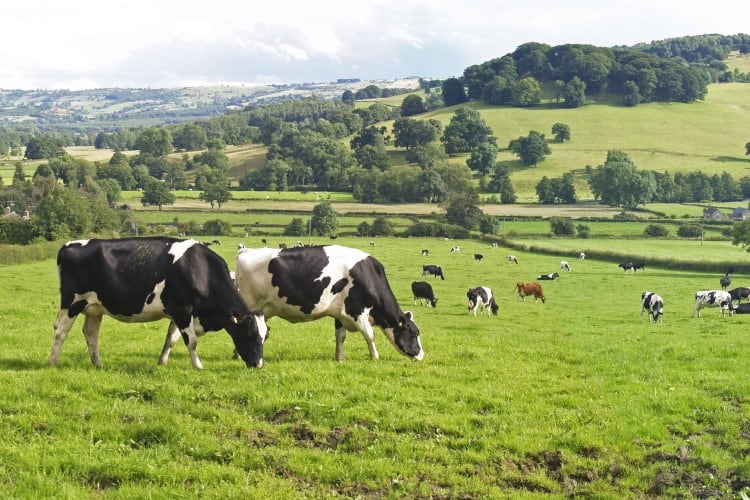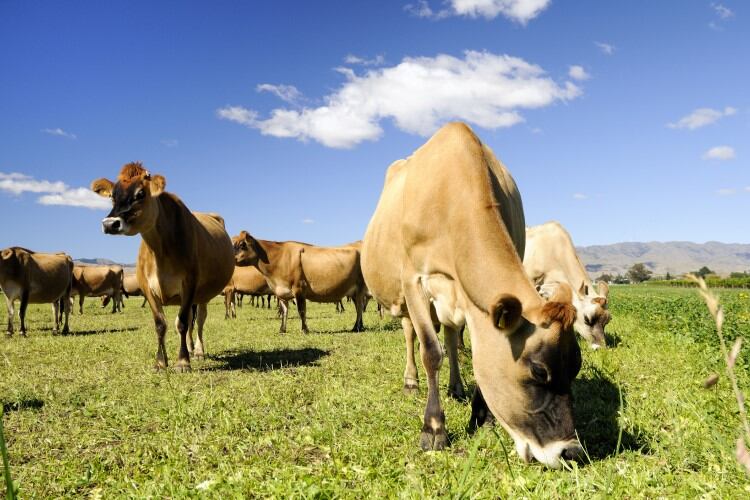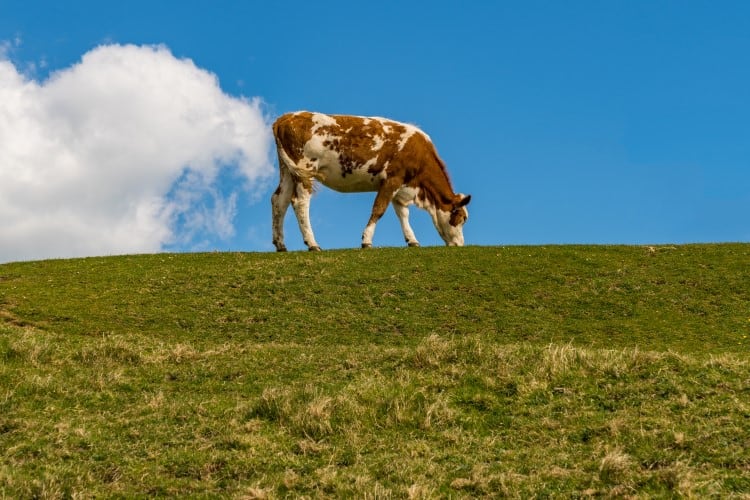The co-op and the dairy manufacturer have been focused on regenerative farming over the years, First Milk by operating the largest regenerative farming program across UK dairy, and Yeo Valley carrying out its own regeneration project to measure the soil carbon stocks on supplier farms.
While the manufacturer is widely associated with its organic dairy and soup ranges, this initiative will see First Milk set up a conventional regenerative milk pool in England’s south west to supply Yeo Valley’s line of non-organic dairy products. The idea is to bring together farmers committed to having a positive impact on the land they farm on, e.g. by restoring and regenerating soils.
“It is early days with regards to recruitment, but we have had lots of enquiries which we are following up,” a spokesperson for the co-op told us. “These have come from both existing members in the area and from other dairy farmers who are interested in becoming part of a regenerative milk pool.”
Dairy farmers who join the new milk pool will receive a premium price for their milk in addition to advice and guidance on all aspects of regenerative farming in order to make their farms businesses more resilient financially and climatically. “What is important is that we get the right farmers who share our combined goals, who are interested in progressing on our regenerative journey.”
It's unclear which of Yeo Valley’s conventional dairy products will be made with the milk supplied by the newly-formed regenerative milk pool, but the co-op said the proportion supplied would increase over time as more farmers join in.
Meanwhile, products containing this milk are set to be sold by many major retailers, and there’s hope that the initiative would raise consumer awareness about regenerative farming – a concept that’s not as widely understood by UK shoppers. Examples of regenerative farming practices include minimizing soil disturbance, integrating grazing livestock into pastures, encouraging plant diversity, retaining green cover and maintaining a living root mass in the soil.
“Consumers are currently less aware of regenerative agriculture and its principles,” said First Milk’s spokesperson, “but fundamentally, we know they support the methods and philosophy behind it. Consumers want us to be working positively with nature and, and they want us to be good custodians of the land and the animals we are responsible for.”
Products containing milk from regenerative dairy producers could also bolster dairy’s profile among eco-conscious consumers, a group that’s likely to grow in numbers and market importance. First Milk’s representative quoted a Kantar forecast which predicts that up to 38% of the global population could be ‘eco-actives’ by 2027, i.e., shoppers who are taking the most actions to improve the sustainability of their food choices1.
While Kantar recorded a decline in the numbers of ‘eco-active’ consumers in 2022 – a dip that could be influenced by global market volatility and the war in Ukraine – that market still forms a large segment of the FMCG industry, worth more than $376bn per year globally. “To tap into this audience, brands must be willing to lead the charge on more sustainable choices,” the report concludes.
But how can dairies that subscribe to regenerative farming practices educate these consumers? “More consumers want cows to be outside grazing as much as possible and that’s a fundamental requirement of joining this group,” the First Milk spokesperson told us. “Regenerative farming principles applied to extensive grazing dairy farms deliver outcomes which consumers will welcome. We believe that communicating these outcomes with evidence and integrity over time is the way to gain their support.”
While regenerative ag techniques typically require long-term commitment to increase biodiversity and soil health, First Milk’s representative told us that ‘from our experience, the adoption of regenerative farming principles does not take long to start to see beneficial results’.
“Its holistic approach allows famers to adjust their current systems in order that changes can be made without any negative impact,” the spokesperson told us. “This allows individual fields to be treated differently, and we have found that results can be seen very quickly, in particular with changes to grazing systems.”
Sources:



